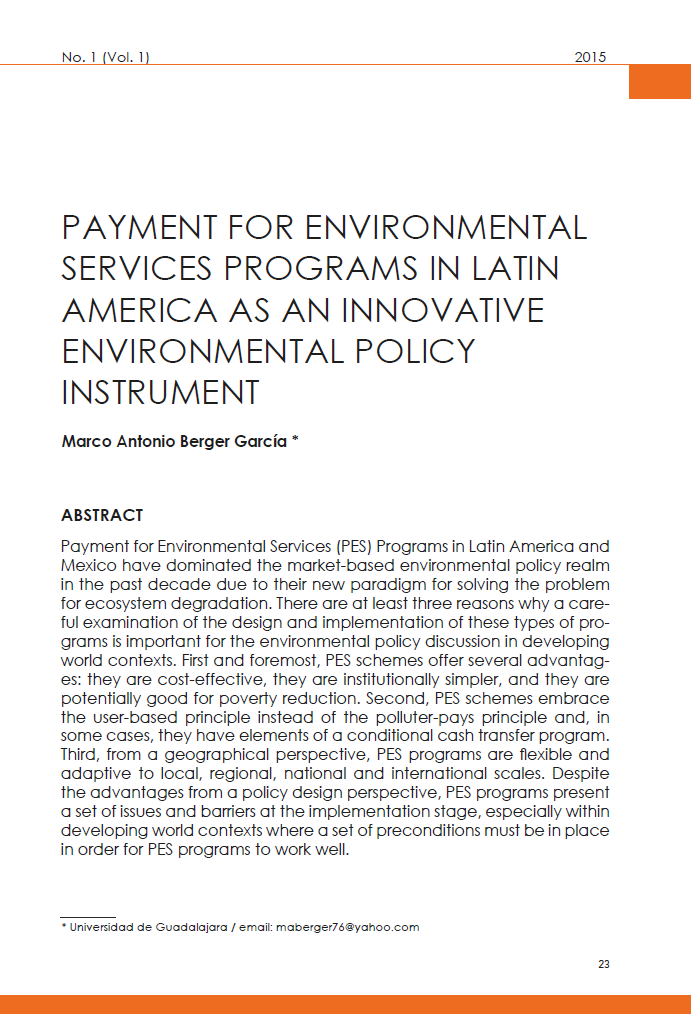PAYMENT FOR ENVIRONMENTAL SERVICES PROGRAMS IN LATIN AMERICA AS AN INNOVATIVE ENVIRONMENTAL POLICY INSTRUMENT
Palabras clave:
Environmental Policy, Public RegulationResumen
Payment for Environmental Services (PES) Programs in Latin America and Mexico have dominated the market-based environmental policy realm in the past decade due to their new paradigm for solving the problem for ecosystem degradation. There are at least three reasons why a careful examination of the design and implementation of these types of programs is important for the environmental policy discussion in developing world contexts. First and foremost, PES schemes offer several advantages: they are cost-effective, they are institutionally simpler, and they are potentially good for poverty reduction. Second, PES schemes embrace the user-based principle instead of the polluter-pays principle and, in some cases, they have elements of a conditional cash transfer program. Third, from a geographical perspective, PES programs are flexible and adaptive to local, regional, national and international scales. Despite the advantages from a policy design perspective, PES programs present a set of issues and barriers at the implementation stage, especially within developing world contexts where a set of preconditions must be in place in order for PES programs to work well.
Descargas
Publicado
Cómo citar
Número
Sección
Licencia

Esta obra está bajo una licencia internacional Creative Commons Atribución-NoComercial-CompartirIgual 4.0.




